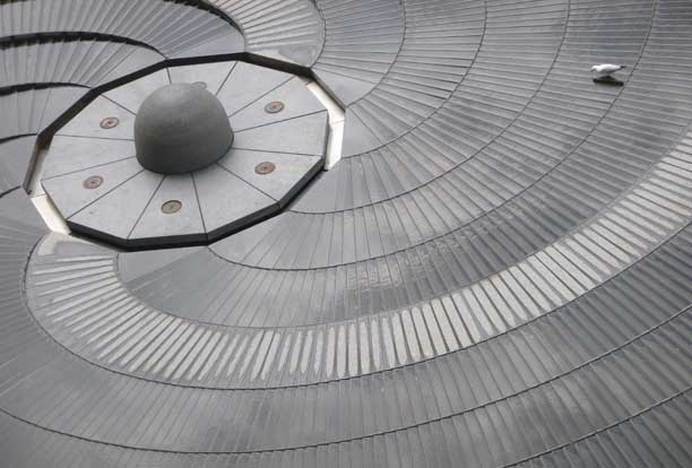Because I think I might like my 3am self if I ever met him, I’m going to keep what he did, and the simplest way to do that is to copy it all down here. In a clumsy attempt to make this look like a deliberate, wide-awake, premeditated blog post, I’ve added some questions at the end – so could we all pretend that this is the mid-term exam for anybody who reads this regularly? The questions are optional, obviously, and I have absolutely no idea what I would do if you sent me some answers.
But hey, why not? My 3am self wrote this – as follows:
Isn’t there a creation myth whereby The Great Editor In The Sky took a rib from the first man and used it as the basis for creating the first woman? Quite a popular creation myth, I believe, leading in time to publications such as Spare Rib and movements such as #MeToo. Odd one, though: you would have to have a sophisticated understanding of human anatomy - or the familiarity that would come from running the cannibal equivalent of a steak house with ribs on the menu - even to start wondering: why’s she got one more than I have?
Small children may tickle each other, but they don’t persist until they’re counting ribs. And both adults and small children alike tend to notice other differences than bone structure when looking at each other’s, um, bits. I imagine The Great E. in the S. planned from the outset that there would be two, a matching pair; otherwise, why make that bit on the man like that, and so on? The question of how many it takes to tango would have been uppermost in said Creator’s mind even before the personal pronouns were handed out. If I put this bit here on this one, and this bit here on that one…
In fact, we all have twelve pairs of ribs. Sorry. Our skeletons are different, and whole genres of television drama sustain themselves on being able to tell, for example that the body on the examination table was the pizza-loving daughter of the university vice-chancellor who found out about the creepy janitor’s drug-smuggling operation, but ribs only ever come into it if one of them has been microscopically nicked by a blow-pipe dart made from the venom of a snake indigenous to that remote area where the friendly and helpful grad student from earlier on in the show happened to mention visiting last Summer.
Snakes are big in creation myths, but ribs just aren’t important, surely? Snakes turn up - roughly at the same point in a good creation myth as the totally innocent-seeming grad student says a brief hello and talks about his holidays in a detect-by-numbers TV drama. That makes sense. But why ribs? I’m guessing: close to the heart. If a creation myth is an early response to a need just to have some kind of an explanation rather than nothing, well, yeah, okay, the first one gets made from available materials and for the second one, there’s a not-yet-automated process akin to cell division.
All of the above works perfectly well however you distribute he and she, She and He. First woman, first man; doesn’t matter. Gaia or some patriarchal figure - never mind. We’re here now. But think of the power of those early storytellers. They’re trying to snooze off a wild-boar lunch, but the tribe’s children (of a certain age) won’t stop asking awkward questions, so they make up something about ribs – while ambush-tickling them, perhaps – and that’s what gets remembered down the millennia. Not the tribe’s important contribution to plant science, say, or the interminable song cycle by the officially revered poet – but that chance remark about ribs. Why?
And why ribs? Close to the heart, maybe, yes, but really, I’m asking – this is where the questions start. Why not half of this one’s heart, or the breath out of this one, or open up the ribs and take out – what? If you had to make up a creation myth on the fly, after a good lunch, how would you explain the coming-into-being of mummy and daddy to an audience of children armed with blowpipes and slingshots?
And why snakes? No, don’t answer than one. What about the absolutely first man/woman? You’ve got an assembly kit made up of, okay, a rib for the second of the two, but where do you start with the first? A lump of clay? Or remodel one of those furry little bunnies? Perhaps one of those less cuddly furry creatures swinging from branch to branch? Candidates are invited to supply their own creation myth, max. 1,000 words, accounting for: mummy and daddy, the rabbit, that butterfly and those primates. Extra marks will be given for beginning with the creation of the universe and the invention of gravity.
But seriously - why ribs? Is history full of failed creation myths where the raw material was collarbones, or internal organs (please specify), or toenail clippings? Or do we just have a cultural thing about ribs? Why?
And if there’s anybody out there who knows anything about washing out indelible laundry marker, I have a bonus question for you.

Thinking aloud just for a moment, the idea behind "big data" - big data as a Thing, with a capital T - is that everything we do online generates data. It's big because it's detailed and comprehensive; every move I make generates more data. Whenever I use a search engine, I'm generating a micro-byte of data on my interests. If I google, let's say, a leather wallet, I'm telling Google that I'm interested in leather wallets. Other examples are available. I know, because the pop-up ads keep reminding me, that I search-engined bistro tables the other day. And I'm haunted by ads for office furniture.
Was I really looking for office furniture? Must have been. I remember that bistro-table impulse; I wanted something for just outside the back door. Item of big data, therefore: William's interested in bistro tables. Add that to the great complexity of data that is held about me. Add that to the location data from my phone; the embarrassing data from my browser; the CCTV; the medical, financial and other records if you can access them; the social-media indiscretions from way back. Because big data isn't just made up of signals I send deliberately. Facebook knows me as well as I can be known from everything I've ever done there; my mobile phone travels with me, so my telco knows where I am; every purchase online, or post, or - whatever other example of a capturable event you care to suggest - tells the big-data industry something about me.
And in theory, therefore, every approach to me, commercial or otherwise, can be fine-tuned on the basis of everything that is known about me. Which implies that all my enthusiasms and interests can be matched to an appropriate provider. I search for a table - you offer me a table. I buy an ebook; you pitch ebooks on similar themes. You don't at any point, ask me what I want, because you're confident that you know me well enough to be sure of your welcome. [Or because you deal in categories of customer, rather than people? Let's not go there.] And you use me for your statistical modelling: people behave this way; men behave that way; men of this age and that income bracket claim to do this but actually do something else entirely. All the way down to: this individual wants to read an ebook about bistro tables.
I don't have a problem with any of this. If you're fixated on offering exactly what I want to buy, at the moment I want to buy it, I'm on your side. Please continue. Or rather, please start. Stop all the pop-up ads about office furniture, because I don't have an office that needs furnishing - as you would know if you looked closely enough at my big data. Stop bugging me with ads for bistro tables - surely you've noticed that recent transaction on my credit card? The garden centre? The hardwood bistro table? Yes, okay, I'll take your word for it that I'm interested in office furniture, but that might have been the time I was looking for a kneeling chair - I was looking for solutions to back pain. Nice try, but I'm okay now. Thanks.
Big data is useful in theory. In practice, I wonder whether analysing my behaviour, and the patterns of my behaviour, is as reliable as it "should" be. You can put together a profile of me and my interests, using big data, as easily as you might draw a line around my shadow. But I move. My shadow moves. The light changes. A cloud crosses the sun. I bought that ebook, and enjoyed it, but today I feel like bingeing on a box set. Sorry, but I'm too human, too unpredictable, to live up to my big data. And no, I know, you can't ask me what I'm going to want tomorrow because even I don't know that. I may fit a demographic, but I'm an individual. Too idiosyncratic even to align my wants, needs and desires precisely with my interests.
Big data is a tool, and a useful one I'm sure. But I reserve the right to be myself. If you want to sell stuff to me, that's great. But keep this in mind: even if I have just written a blog post mentioning bistro tables, and office furniture, and ebooks, right now I'm really only interested in spending significant money on [some text missing here]. You could work that out from my accumulated big data, of course, although it's just today's unpredictable impulse, but you've never even thought of sending me an ad for one of those, have you?




